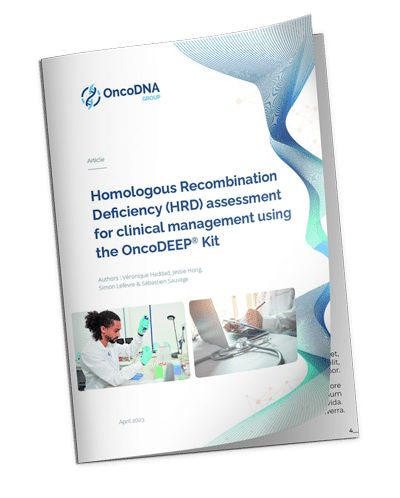
The Homologous Recombination Repair (HRR) pathway repairs DNA double-strand breaks (DSB). HRR deficiency leads to the accumulation of genomic aberrations and genomic instability which can promote malignant transformation. This phenotype of loss of the HRR capability and the associated genomic instability is called Homologous Recombination Deficiency (HRD). This phenotype has been associated with several cancer types. The determination of HRD status can provide crucial information, which can be used to personalize the treatment of patients with ovarian cancer. Indeed, recently targeted treatments have been approved by the FDA and EMA for treating patients with ovarian cancer depending on their HRD status. Hence, with the knowledge of the HRD status, oncologists can be further aided in their clinical decision-making and to determine the best course of treatment for their patients.
In this perspective, OncoDNA has developed a comprehensive genomic profiling assay that screens for a very wide range of cancer biomarkers and genomic signatures such as HRD status which can reduce the costs of testing and deliver faster results in the selection of appropriate cancer treatment options.
Download the white paper : Homologous Recombination Deficiency (HRD) Assessment for Clinical Management using the OncoDEEP® Kit
For further exploration and to gain more comprehensive insights into HRD genomic scar result interpretation, along with new strategies in this area, we recommend visiting our detailed page: Enhancing HRD Genomic Scar Result Interpretation – New Insights and Strategies. This resource offers an extensive overview of the latest advancements and approaches in HRD assessment, enriching your practical understanding and application of the OncoDEEP Kit in the field of oncology.
